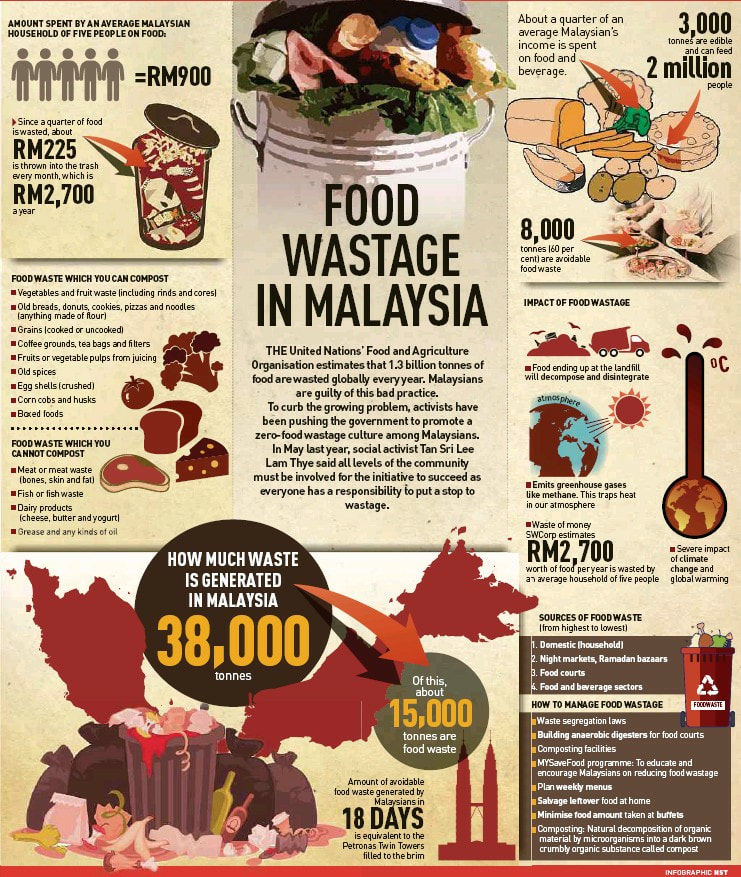Food Waste Behaviour and Awareness of Malaysian

Source from: Food Wastege in Malaysia
Food waste poses a significant global issue, and Malaysia is no exception. The repercussions of food waste are substantial, encompassing heightened production costs, adverse effects on human health, and environmental degradation. In Malaysia, dietary preferences, whether animal- or plant-based, influence the choice of food waste decomposition methods. Unfortunately, many methods primarily accommodate plant-based materials for composting. This study aims to explore Malaysians' awareness of food waste behavior and the components suitable for decomposition.
Findings indicate that Malaysians tend to generate more plant-based food waste than animal-based waste. While there is a high level of awareness regarding the causes and impact of food waste, there is a notable gap in translating this awareness into concrete actions for waste reduction.
Bio-composting emerges as the perceived most effective method for managing food waste,
with a willingness among many Malaysians to adopt it at home. However, some express reluctance due to time constraints for maintaining a
compost pile at home.